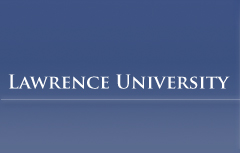Document Type
Honors Project
Publication Date
6-17-2022
Abstract
On geologic timescales, the weathering of silicate rocks is among the most powerful negative feedbacks controlling atmospheric CO2. However, this process is too slow to meaningfully impact our current climate crisis. Enhanced Rock Weathering (ERW) is one of the most promising carbon capture strategies to remove anthropogenic carbon from the atmosphere. Models suggest that by crushing silicate rocks such as basalt to increase surface area, the process of rock weathering can be accelerated to sequester enough carbon to be significant on human timescales. At Lawrence University, ERW is being investigated to (1) field test the efficacy of the geochemical models that predict promising results for ERW, and to (2) test how the model responds to different soil and climatic conditions. Chemical analyses were conducted to determine the mineralogical changes in the soil with response to the basalt. ICP, SEM-EDS, qXRD, and pH were measured to find the relative concentrations of magnesium and titanium within the sample, secondary mineral growth, temporal mineralogical changes, and the concentration of H+ ions respectively. My work at Lawrence will contribute to improving the biogeochemical models of ERW and provide a framework for the feasibility of ERW as a long-term carbon storage mechanism in the Midwest.
Level of Honors
magna cum laude
Department
Geosciences
Advisor
Andrew Knudsen
Recommended Citation
Mahorney, Katie, "Evaluating the Biogeochemical Effects of Enhanced Rock Weathering at Lawrence University" (2022). Lawrence University Honors Projects. 172.
https://lux.lawrence.edu/luhp/172
